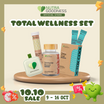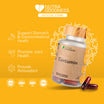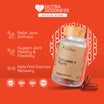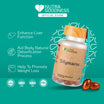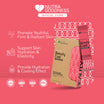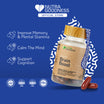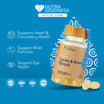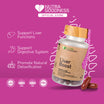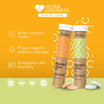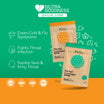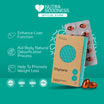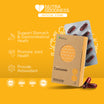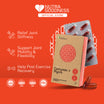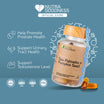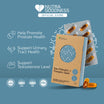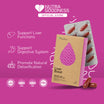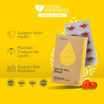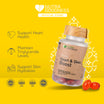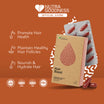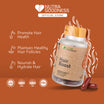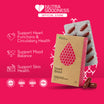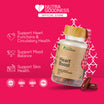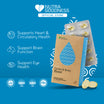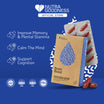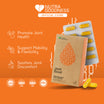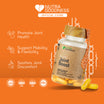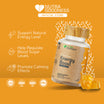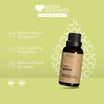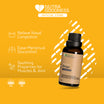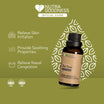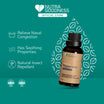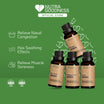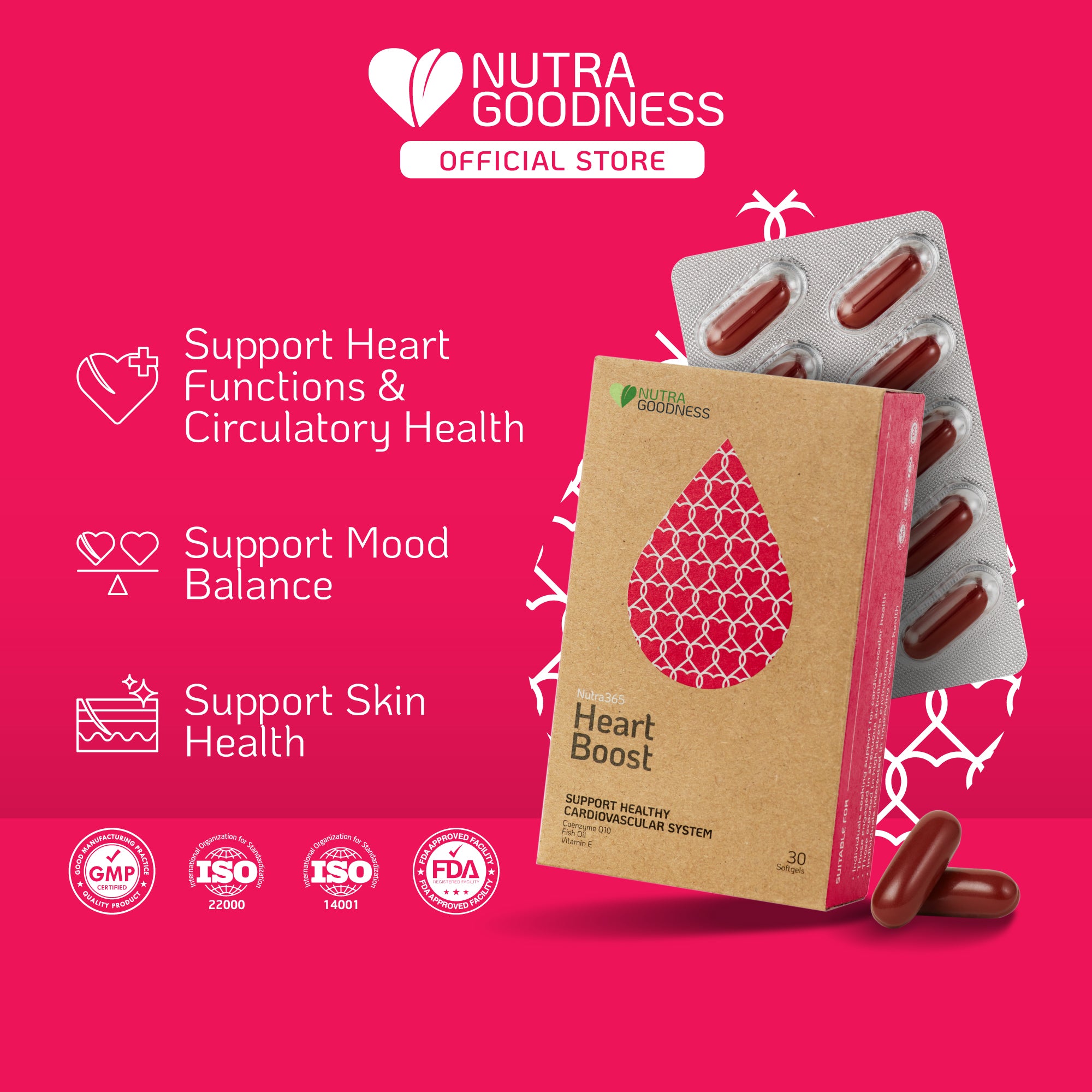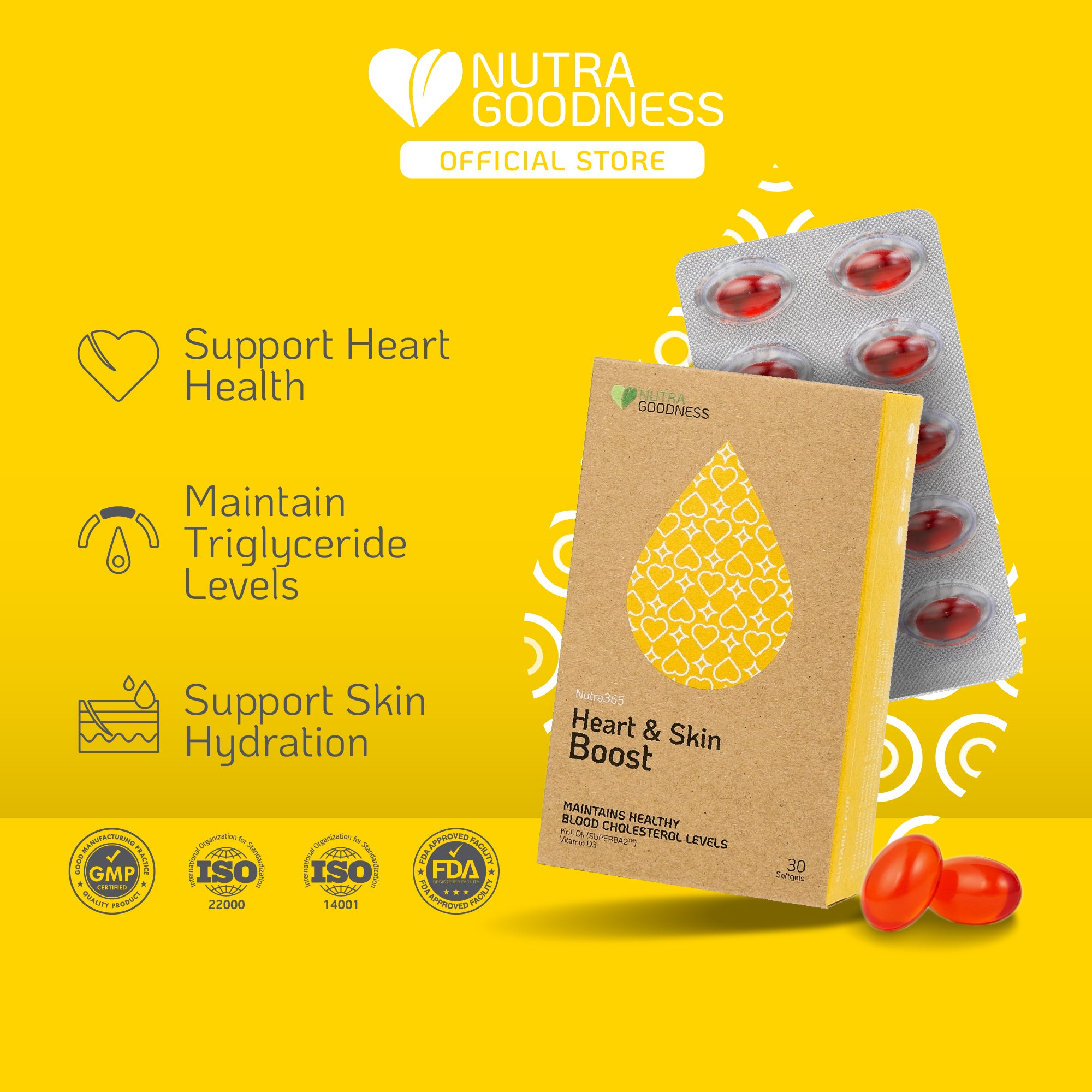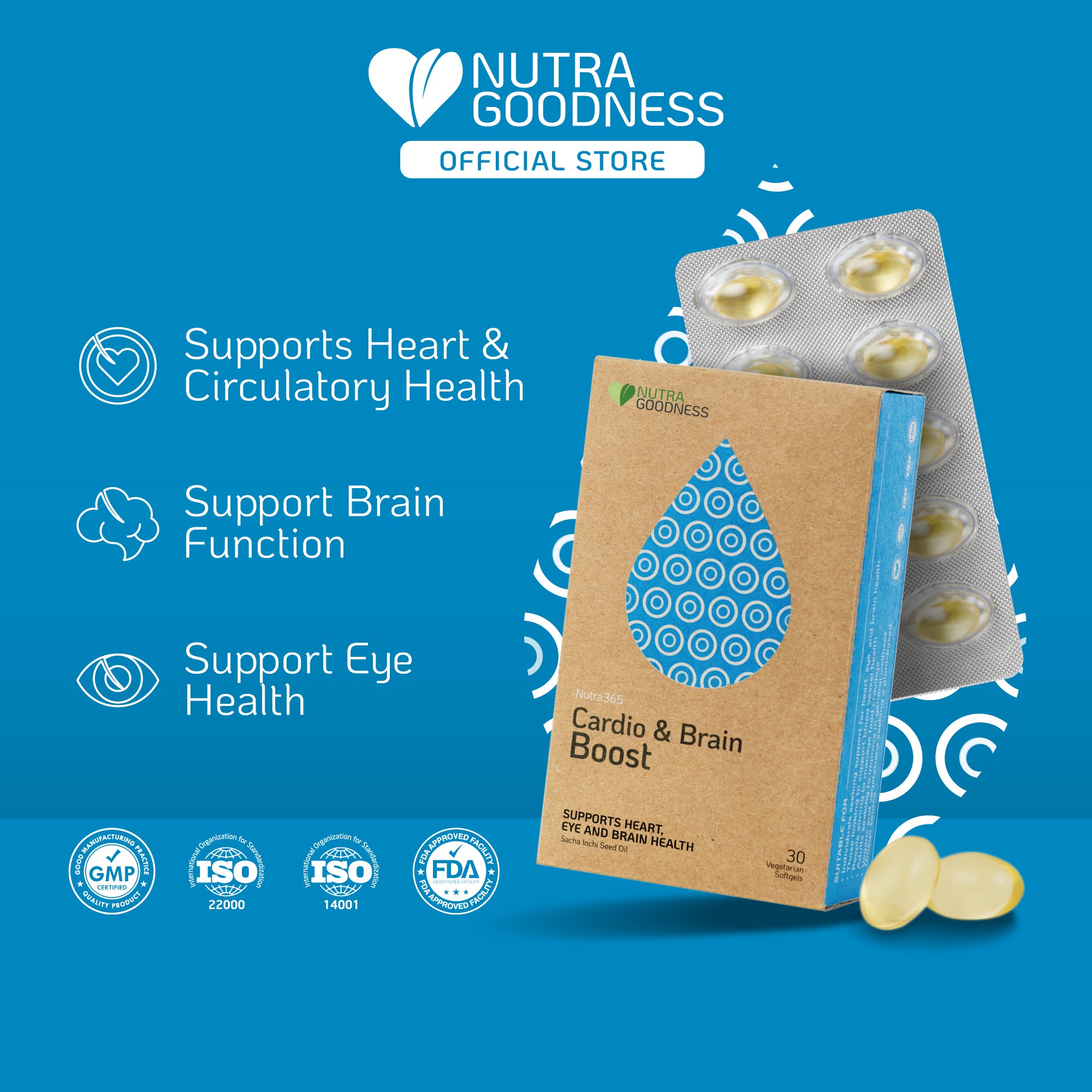When it comes to living a long and fulfilling life, your heart plays the starring role. A healthy heart pumps life-giving blood, oxygen, and nutrients to every part of your body, keeping everything running smoothly. But in today’s fast-paced world, heart disease, high cholesterol, and hypertension are on the rise—and it's affecting people at younger ages than ever before.
Whether you’re at risk due to genetics, lifestyle, or chronic stress, taking proactive steps toward better heart health can make all the difference. This guide will walk you through the essential pillars of heart health—nutrition, exercise, lifestyle, heart health supplements, and preventive care—so you can take charge of your cardiovascular wellness.
Now, we understand that with the number of health supplement providers in Singapore, it can be quite overwhelming. There is also the inevitable question: what is the best omega 3 supplement on the market? With this guide, we sincerely hope you’ll be able to find the best omega 3 supplement on the market for your needs.
Understanding Heart Health: Why It Matters
Your heart is more than just a muscle—it’s the engine of your body. When your heart functions well, it supports your brain, kidneys, immune system, and every cell in between.
Your heart is like a powerful pump that keeps your body alive and energized. It beats about 100,000 times a day to send blood filled with oxygen and nutrients to every part of your body.
Here’s how it works:
- Blood without oxygen comes into the heart.
- The heart sends it to the lungs to get fresh oxygen.
- The oxygen-rich blood comes back to the heart.
- Then, the heart pumps it out to the rest of the body.
This process happens non-stop to keep your organs, muscles, and brain working properly.
A healthy heart does a lot, it:
- Sends oxygen to your brain, helping you stay alert and focused.
- Powers your muscles, giving you the energy for daily movement.
- Supports your kidneys and lungs, helping remove waste and keeping you breathing easily.
- Keeps your immune system strong by moving immune cells where they’re needed at all times.
If your heart isn’t working well, it can affect your entire body. That’s why taking care of your heart is one of the most important things you can do for your overall health.
Common cardiovascular conditions like heart disease, stroke, high blood pressure, and atherosclerosis can severely impact quality of life. These issues often stem from a mix of genetic predisposition and lifestyle factors like poor diet, inactivity, smoking, and unmanaged stress.
Both your genes and your lifestyle play a role.
Genetics:
Some people are born with a higher risk of heart disease. This can include:
- A family history of heart attacks or high cholesterol
- Genetic conditions like high blood pressure or inherited cholesterol disorders (like familial hypercholesterolemia)
While you can’t change your genes, knowing your family history can help you take action early.
Lifestyle Choices:
Your daily habits have a huge impact on heart health—often more than genetics. Things like:
- What you eat
- How active you are
- Whether you smoke or drink
- How well you manage stress and sleep
Another underlying cause? Chronic inflammation and oxidative stress, which silently damage blood vessels and heart tissue over time. The good news? You have more control than you think.
The Silent Danger: High Cholesterol and Its Impact on the Heart
Cholesterol is often misunderstood. It’s not all bad—in fact, your body needs cholesterol to build healthy cells, produce hormones, and support digestion. The problem arises when you have too much of the wrong kind, or an imbalance, which can put your heart at risk.
Here’s a breakdown:
- HDL (High-Density Lipoprotein) – Known as the “good” cholesterol, HDL acts like a cleanup crew. It helps remove excess cholesterol from your arteries and transports it back to the liver to be processed and eliminated.
- LDL (Low-Density Lipoprotein) – Often called “bad” cholesterol, LDL can build up in the walls of your arteries, forming plaque that narrows the blood vessels. This restricts blood flow and increases the risk of heart attacks and strokes.
- Triglycerides – These are another type of fat in your bloodstream. While your body uses them for energy, high levels (especially when combined with low HDL or high LDL) can significantly increase your risk of cardiovascular disease.
This raises an important question many health-conscious individuals ask: can fish oil lower cholesterol? Research suggests that omega-3 fatty acids found in fish oil can help reduce triglyceride levels and may modestly improve overall cholesterol balance. As part of a heart-healthy lifestyle, fish oil supplements are often considered a natural way to support cardiovascular health.
What Throws Cholesterol Off Balance?
One of the biggest culprits is diet.
A pattern of eating processed foods, sugary snacks, fried items, and trans fats can spike LDL and triglycerides while lowering HDL.
- Trans fats (often found in baked goods and fast food) are particularly harmful—they not only raise LDL but also lower HDL.
- Excess sugar contributes to insulin resistance and weight gain, both of which are linked to higher triglycerides.
Over time, these habits contribute to atherosclerosis—a condition where arteries become hardened and narrowed, setting the stage for heart attacks, strokes, and chronic heart disease.
The good news? You have the power to change this.
We believe that with a better understanding of cholesterol’s role and making smarter lifestyle choices, you can balance your levels, protect your arteries, and keep your heart pumping strong for years to come. It all starts with separating fact from fiction and choosing foods and habits that support a healthier you.
To answer the burning question - can fish oil lower cholesterol? To an extent, it does assist in lowering cholesterol. However, it’s important to combine it with regular exercise and a balanced diet for the best results.
Nutrition for a Stronger Heart
Your plate can be your heart’s greatest ally.
Heart-Healthy Foods:
-
Omega-3s
Found in fatty fish such as salmon, mackerel, and sardines, as well as walnuts, chia seeds, sacha inchi seeds oil and flaxseeds, omega-3s are known for their powerful anti-inflammatory effects. They help reduce triglycerides, lower blood pressure, and support smoother blood flow—making them essential for cardiovascular protection.
-
Antioxidant-rich fruits and vegetables
Berries, leafy greens, tomatoes, and citrus fruits are packed with vitamins, minerals, and plant compounds like flavonoids and polyphenols. These antioxidants neutralise harmful free radicals, reduce inflammation, and protect your heart’s cells from oxidative damage.
-
Whole grains and fibre
Oats, brown rice, quinoa, barley, and whole wheat contain soluble fibre, which helps lower LDL (“bad”) cholesterol by binding to it in the digestive tract. Fiber also helps control blood sugar and supports healthy digestion—both important for heart health.
-
Lean proteins
Choose lean cuts of poultry, legumes (like lentils and beans), tofu, and low-fat dairy over red or processed meats. These proteins provide essential amino acids without the saturated fat that can raise cholesterol. Legumes, in particular, are high in fibre and help keep blood pressure in check.
Foods to Avoid:
-
High sodium processed snacks and meals
Packaged snacks, canned soups, instant noodles, deli meats, and fast food are often loaded with sodium (salt). Too much sodium raises blood pressure, which strains your heart and increases the risk of stroke and heart failure. Aim for less than 2,300 mg of sodium per day, or lower if advised by your doctor.
-
Refined sugars
Excess sugar—found in sodas, pastries, candies, and sweetened beverages—spikes insulin levels and contributes to inflammation, weight gain, and insulin resistance, all of which are major risk factors for heart disease. Over time, sugar can also negatively impact triglyceride levels and blood vessel function.
-
Unhealthy fats
Often hiding in margarine, baked goods, and fried foods, trans fats are especially harmful because they raise LDL cholesterol while lowering HDL cholesterol. This double blow increases your risk of artery blockages and heart attacks. Always check food labels for “partially hydrogenated oils” and avoid them completely.
The Mediterranean Diet, rich in healthy fats like olive oil, plenty of vegetables, fruits, whole grains, and lean proteins, has long been praised for its ability to support heart health and overall well-being. Its abundance of antioxidants and anti-inflammatory foods helps protect blood vessels and maintain healthy cholesterol levels. Just as important is staying well-hydrated — drinking enough water throughout the day helps keep your blood flowing smoothly, supports optimal circulation, and ensures that nutrients and oxygen are efficiently delivered throughout the body. For those looking to further enhance these benefits, many often ask what is the best omega 3 supplement on the market to complement a heart-healthy diet. High-quality omega-3 supplements can play a vital role in supporting cardiovascular function, especially when dietary sources may be limited. Together, these habits create a powerful foundation for cardiovascular health.
Exercise: The Best Workouts for Cardiovascular Health
Physical activity is essential for a healthy heart. It strengthens your heart muscle, improves circulation, reduces stress, and helps manage weight and cholesterol levels.
Best Exercises for Heart Health:
- Aerobic: walking, cycling, swimming—great for increasing heart rate and stamina.
- Strength Training: supports vascular health and helps regulate blood sugar.
- Flexibility & Balance: yoga and stretching reduce stress and prevent injury.
Aim for at least 150 minutes of moderate aerobic activity per week, plus 2 days of strength training. Even short bursts of movement throughout the day count!
Stress, Sleep, and Mental Well-Being: The Hidden Factors of Heart Health
Your mind and emotions deeply impact your heart.
How Stress Harms Your Heart:
- Raises cortisol levels
- Increases blood pressure
- Triggers inflammation
Tips to Manage Stress:
- Practice deep breathing, mindfulness, and meditation
- Stay socially connected and take time for hobbies
Sleep and Your Heart:
Poor sleep raises the risk of high blood pressure, heart disease, and weight gain.
- Aim for 7–9 hours per night
- Create a calming bedtime routine and limit screen time
Don’t overlook mental health—depression and anxiety are linked to higher cardiovascular risk.
The Power of Preventive Care: Regular Check-Ups and Screenings
Knowledge is Power When It Comes to Heart Health
When it comes to protecting your heart, staying informed is one of the most powerful things you can do. Many heart-related conditions—like high blood pressure, high cholesterol, and even early-stage heart disease—often show no obvious symptoms. That’s why routine check-ups and screenings are essential for catching problems early, before they become serious.
During these check-ups, many people also ask their doctors: can fish oil lower cholesterol? This common question reflects growing awareness of how natural supplements can support heart health. While fish oil may help reduce triglyceride levels and improve cholesterol balance, regular screenings remain the cornerstone of preventive care.
Stay on Top of Key Health Checks:
• Blood Pressure
High blood pressure (also known as hypertension) is often called the “silent killer” because it rarely causes symptoms until damage has already occurred. Regular monitoring helps you catch rising levels early and take steps to control them through diet, lifestyle, or medication.
• Cholesterol
Getting your cholesterol checked helps you understand your levels of HDL (good), LDL (bad), and triglycerides. High LDL or triglycerides increase the risk of clogged arteries, heart attacks, and stroke.
• Blood Glucose (Sugar)
High blood sugar or insulin resistance can damage blood vessels and lead to diabetes, a major risk factor for heart disease. Keeping glucose in a healthy range supports not just your heart, but your overall health.
Early Detection Saves Lives
Modern diagnostic tools can detect hidden heart issues:
- EKG (Electrocardiogram): Checks your heart’s electrical activity and can detect irregular rhythms or previous heart damage.
- Stress Test: Assesses how your heart performs under physical stress, revealing potential blockages or reduced blood flow.
- Coronary Calcium Scan: A quick CT scan that measures plaque buildup in your coronary arteries—a strong indicator of future heart problems.
Team Up with Your Doctor
Don’t be afraid to ask questions about your results. Understanding your numbers (like blood pressure, cholesterol, BMI, and glucose) can help you make smarter choices. Better yet, work with your healthcare provider to create a personalized heart health plan—one that’s tailored to your age, health history, lifestyle, and goals.
Remember, when you have the right information and support, you can take control of your heart health—and enjoy a longer, stronger life.
Heart Supplements: Can Fish Oil Lower Cholesterol?
Boost Cardiovascular Health with Nutra365 Heart Boost or Nutra365 Cardio & Brain Boost
Your heart is one of the hardest-working organs in your body, beating 24/7 to supply blood, oxygen, and nutrients to every cell. To function at its best, it requires a steady supply of key nutrients—many of which can be difficult to get consistently from diet alone.
This is where high-quality heart supplements come in: they bridge nutritional gaps, support critical functions, and help the body manage the wear and tear that accumulates over time due to stress, aging, poor diet, or chronic conditions.
While lifestyle changes are crucial, targeted supplements can offer additional support—especially when formulated with premium ingredients.
Nutra365 Heart Boost: Your Daily Heart Ally
A premium supplement designed to support cardiovascular health with a potent blend of:
- Coenzyme Q10 (CoQ10): Fuels heart cells with energy, reduces oxidative stress, and may lower blood pressure.
- Fish Oil (Omega-3 Fatty Acids): Lowers triglycerides, reduces inflammation, and improve overall cardiovascular function.
- Vitamin E (D-alpha tocopheryl acetate): Protects heart cells from damage, supports blood vessel health, and acts as an antioxidant shield.
Nutra365 Heart Boost is ideal for anyone looking to maintain heart health, especially those with busy lifestyles or limited dietary intake of these nutrients.
Tip: Take it daily with food for optimal absorption and stay consistent.
Nutra365 Cardio & Brain Boost: Power Up Your Heart Naturally
A daily supplement crafted to promote cardiovascular performance using nutrient-rich Sacha Inchi Seed Oil — nature’s plant-based omega powerhouse.
Sacha Inchi Seed Oil4:
-
Rich in Omega-3, 6, and 9 to help lower cholesterol levels
-
Supports healthy blood pressure and arterial function
- Anti-inflammatory and antioxidant-rich for overall heart resilience
Nutra365 Cardio & Brain Boost is perfect for individuals seeking natural, plant-based heart support — especially those avoiding fish-based oils or following a vegetarian lifestyle.
Tip: Take it daily with meals to enhance absorption and consistency.
Medical Treatments, Supplements, and Alternative Therapies
For some, medication is essential. Blood pressure meds, statins, and blood thinners are commonly prescribed—but often come with side effects.
That’s where natural supplements and alternative therapies can complement care:
- Magnesium & potassium support heart rhythm
- Fiber lowers cholesterol naturally
- Herbal medicine & acupuncture may help with circulation and relaxation
- Essential oils (like lavender, peppermint, lime or rosemary) can ease stress and support well-being
Always consult your doctor before adding new treatments.
Sustainable Lifestyle Changes for a Lifetime of Heart Health
The key to lasting heart health isn’t crash diets or gruelling workouts—it’s consistency.
Start small:
- Swap salty snacks for fruit
- Take the stairs
- Schedule 10-minute stretch breaks
Set Realistic Goals:
- Track your progress
- Celebrate wins (even small ones!)
- Involve your family or support group
Create an environment that makes healthy living enjoyable—your heart will thank you.
Conclusion: Taking Charge of Your Heart Health Today
Heart health isn’t just about avoiding disease—it’s about living with energy, joy, and freedom.
By taking action today—through better food choices, regular movement, stress care, and the right heart health supplement in Singapore—you’re laying the foundation for a longer, healthier life.
Remember: A healthier heart means a longer, happier life. Start today!



![[Nutra Goodness MindFuel Wellness] Nutra365 Cardio & Brain Boost + NutraGummy Energy Boost + NutraFizz Effervescent](http://www.nutragoodness.com/cdn/shop/files/Oct_Banners-29_1.png?v=1759198351&width=104)
![[Nutra Goodness Glow & Hydrate Set] Nutra365 Heart & Skin Boost + NutraBreeze BeautyCool + NutraFizz Effervescent](http://www.nutragoodness.com/cdn/shop/files/Oct_Banners-30.png?v=1759198320&width=104)
![[Nutra Goodness Daily Defense Set] NutraBreeze DetoxCool + NutraFizz Vitamin C Effervescent + NutraSooth Lozenges](http://www.nutragoodness.com/cdn/shop/files/Oct_Banners-31.png?v=1759198291&width=104)

